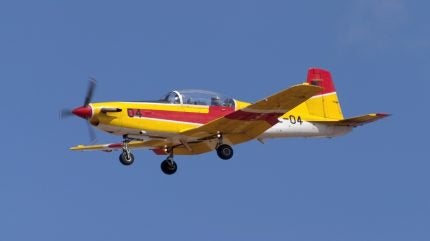
The Netherlands Ministry of Defence (MoD) has selected Pilatus for the supply of eight PC-7 Mk X aircraft and two simulators.
This decision aims to replace the existing 13 PC-7 trainers, which were acquired in 2008 and are nearing the end of their technical lifespan.
The PC-7 has been used for basic pilot training since 1988.
In an effort to extend the service life of these aircraft, Pilatus undertook a modification programme in 2013, allowing the fleet to operate into the late 2020s.
Student pilots, who start and complete basic training on the PC-7, advance to international training programmes such as the Euro-NATO Joint Jet Pilot Training in the US or the Italian Air Force’s schools.
The new MkX variant is a modernised version of the PC-7 MkII, featuring design and system upgrades by Pilatus engineers.
The new aircraft is said to offer simple and military flying characteristics.
It also passed its acid test in 2020 when a small Pilatus team presented the aircraft to Air Force Academy instructors in Al Ain, even under strict Covid-19 protocols and temperatures reaching 50°C.
Post-elementary training, students progress to the T-6 Texan II under the ENJJPT programme.
The selection process for the new aircraft involved two suppliers, Pilatus and another contender. The latter has initiated legal proceedings against the MoD.
The contract with Pilatus will be finalised pending the court’s ruling in favour of the defence.
Last year, CMC Electronics announced a multi-year agreement with Pilatus Aircraft to acquire its avionics systems for the PC-21 next generation trainer.
The Canada-based company confirmed that the contract included the head-up display subsystem, flight management system, and GNSS receiver.



